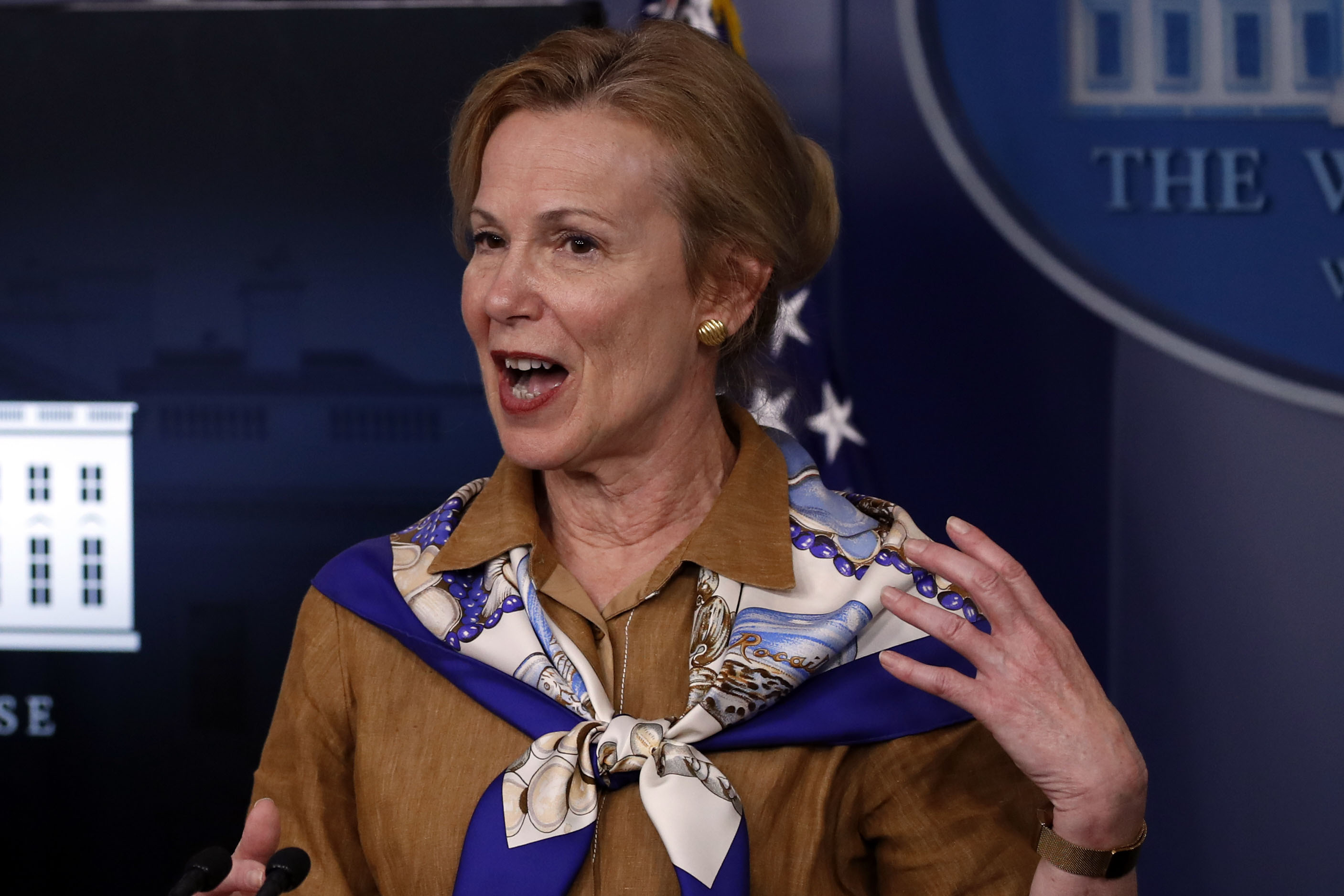Our live coverage of the coronavirus pandemic has moved here.
April 6 coronavirus news
By Helen Regan, Jessie Yeung, Adam Renton, Amy Woodyatt and Meg Wagner, CNN
Colombia extends isolation order until April 26
From CNN’s Abel Alvarado and Jackie Castillo in Atlanta
Colombian President Iván Duque announced that he will extend the nationwide isolation order until April 26.
In a tweet, Duque said the measures taken to slow the spread of coronavirus "have been positive.”
"Our challenge is to continue saving lives." Duque added.
The order for “mandatory preventive isolation” took effect on March 25 and was initially scheduled until April 13.
All Los Angeles residents can now apply for coronavirus testing
From CNN’s Jenn Selva
All 10 million residents in Los Angeles County are now eligible to apply for a coronavirus test.
Mayor Eric Garcetti said at a news conference today that there are “no longer any limits” on who can apply for the testing. Patients don’t have to be over age 65, have underlying medical conditions, or have a weakened immune system, as was previously required.
Garcetti said that doesn’t mean officials immediately have a test for everyone in the county -- the most populous in the US -- but it means that the capacity of tests is now greater than the number of cases they’ve been receiving under the previous guidelines.
LA County residents can register for testing at https://corona-virus.la
750,000 people in North Carolina could be infected by June, warns state health official
From CNN's Jennifer Henderson
If North Carolina stops social distancing at the end of April -- as President Donald Trump and administration officials have pushed for -- there could be 750,000 state residents infected by June, said state health officials.
“The team found that the social distancing policies we currently have in place in North Carolina will help lower the likelihood that we’ll overload our health care system, that’s good news,” said Mandy Cohen, Secretary of the North Carolina Department of Health and Human Services, in a news conference today.
The North Carolina-specific modeling forecast showed that if the state stopped social distancing by the end of this month, there is more than a 50% probability that the state will outstrip ICU bed capability and acute care capacity -- even as early as May.
On the other hand, if social distancing stayed in effect, it could cut the number of infections by half a million cases -- down to 250,000.
North Carolina now has 2,870 cases and 33 deaths, said Cohen.
Chile mandates face masks on public and private transportation
From CNN's Cristopher Ulloa and Jackie Castillo
Chile has announced the mandatory use of face masks for all travelers riding public and private transportation to combat the spread of coronavirus.
During a televised press conference Monday, Chile's Undersecretary of Public Health Paula Daza said the measure will go in effect Wednesday, April 8 at 5 am local time.
Some of the transportation methods that are included in the measure include trains, buses, metros and taxis.
The announcement comes after Health Minister Jaime Mañalich called on the population to start making their own masks with homemade materials, such as T-shirts and scarves.
California suspends evictions and sets $0 bail for misdemeanors and lower-level offenses
From CNN's Anna-Maja Rappard
California's Judicial Council approved a series of temporary emergency rules Monday, including staying eviction and foreclosure proceedings during the Covid-19 pandemic, a vote that reinforces Democratic Gov. Gavin Newsom's executive order to delay such actions against renters and homeowners in the state.
During a teleconference Monday afternoon, the council also moved to set bail statewide at $0 for misdemeanors and lower-level felonies to "safely reduce jail populations."
Chief Justice Tani G. Cantil-Sakauye opened the session saying, "(We are) trying our best to preserve rights and ultimately preserve lives."
"We are at this point truly with no guidance in either history, law or precedent. And to say that there is no playbook is a gross understatement of the situation."
District attorney Jackie Lacey, who presides over Los Angeles County where a zero-bail measure was implemented last week to reduce the number of inmates, applauded the decision.
"I appreciate the collaboration among criminal justice leaders in Los Angeles County that has resulted in the rapid deployment of new and innovative approaches as we work to try to stop the spread of COVID-19 in our community," Lacey said in a statement.
In total the council approved 11 temporary emergency rules. Among the actions the council approved, to go into effect immediately are:
- Suspend the entry of defaults in eviction cases;
- Suspend judicial foreclosures;
- Allow courts to require judicial proceedings and court operations be conducted remotely, with the defendant’s consent in criminal proceedings;
- Adopt a statewide emergency bail schedule that sets bail at $0 for most misdemeanor and lower-level felony offenses;
- Allow defendants to appear via counsel or remote technologies for pretrial criminal hearings;
- Prioritize hearings and orders in juvenile justice proceedings and set a structure for remote hearings and continuances;
- Extend the timeframes for specified temporary restraining orders;
- Extend the statutes of limitations governing civil actions; and
- Allow electronic depositions in civil cases.
Fact-checking Trump on performance of the small business lending program
From CNN's Lauren Fox
During Monday's White House coronavirus task force briefing, Trump claimed that the Paycheck Protection Program -- a small businesses lending program -- has “really been performing well.”
Trump said there were a few “minor glitches that have already been taken care of.”
Facts First: CNN has reported significant issues to the Paycheck Protection Program (PPP), with system wide failures as lenders process these loans.
Days after the launch of the Small Business Administration's rollout of the PPP, there are still delays in the system lenders use to upload loan application information and the money is still largely not going out to the businesses that need it yet.
According to an industry source who spoke to CNN, major system-wide failures continue to crop up in the PPP system, including shutdowns preventing the submission of applications from lenders on their system known as E-Tran. These issues have slowed down the ability for banks to participate in the loan program, this source tells CNN.
Additionally, several bank executives tell CNN they want the Treasury Department or the Small Business Administration to offer more guidance on how they are supposed to disburse funds. CNN reporting indicates there are also concerns among lenders who say they won’t cut checks until there is clear guidance on how they should distribute the money.
To read more about the early glitches in the small business lending program, read here and here.
Pregnant women with coronavirus don’t experience more severe illness than the general population, unlike in SARS and flu cases, study finds
From CNN Health’s Jen Christensen
Pregnant women don’t seem to be any more susceptible to severe symptoms of Covid-19, compared to the general population and they don’t seem to pass the infection onto their babies, according to a new study,
The small study was published Monday in the American Journal of Obstetrics & Gynecology and looked at data from 43 pregnant women in New York who tested positive for Covid-19 over two weeks between March 13 and 27.
Thirty-seven of the women in the study experienced a mild form of Covid-19, four developed a severe form of the disease and two experienced what researchers called “critical disease.” The percentages are similar to the breakdown of severity in disease in the general population. About 80% experience mild disease, 15% develop severe cases and 5% result in critical cases.
Scientists were interested in the impact of the disease on pregnant women because in prior SARS and H1N1 pandemics, pregnant women were more susceptible to serious forms of the illness and had a greater chance of dying from the infection than the general population.
None of the babies in this study seemed to be infected, based on tests performed on them on the first day of their lives.
Birx says she did not visit sick grandchild because of the risk and urged people to stay home
From CNN's Nikki Carvajal

Dr. Deborah Birx, coordinator of the White House coronavirus task force, says she did not visit her grandchild despite the 10-month-old having “a fever of 105 this weekend.”
Birx shared her experience during a Monday task force briefing with reporters, while urging people in particularly high-risk areas to stay home as much as possible.
“I’m the doctor. And I couldn’t get there,” she said during the press briefing. “I mean, so I’m trying to explain to my daughter how to listen to her lungs. How to listen to her lungs, how to listen to the baby’s lungs…”
President Donald Trump, standing feet away from Birx, asked, “But you did not get there, you did not get there?”
“I did not go there. Because of you two,” she said, gesturing toward the President and Vice President Mike Pence, who stood nearby. “I mean, you can’t take that kind of risk with the leaders of the country.”
Birx said that her granddaughter is “coming out of it.”
She stopped short of telling people not to go to the grocery store for the next week in high-risk areas, but did recommend consolidating shopping trips and sending one member per family.
Watch the moment:


